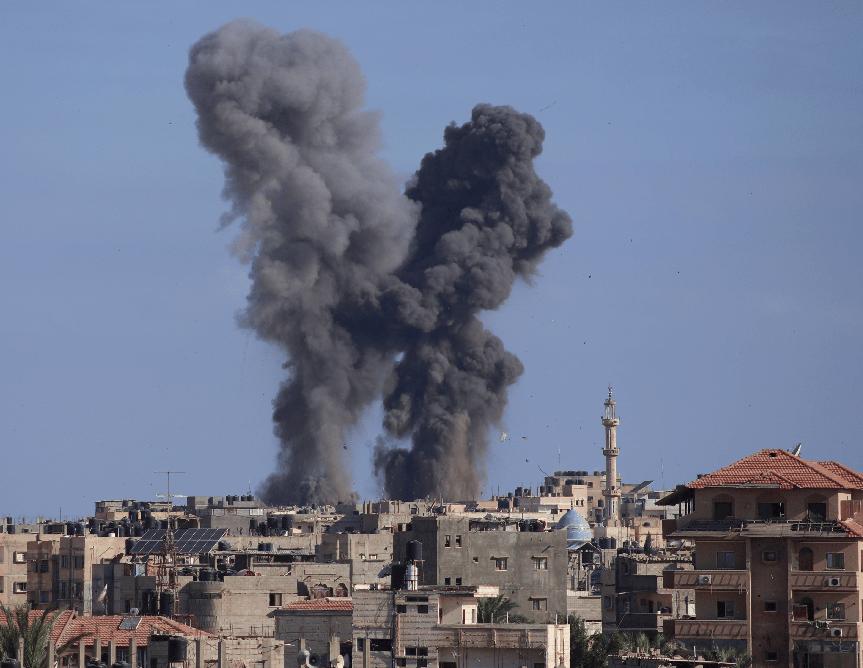
The recent use of drones and missiles by the Houthis against Israel has not only raised the temperature in the Middle East, but also highlighted the many dilemmas and problems facing Israel, and put the role and behavior of the United States and its Western Allies in the region under international scrutiny.
From a military perspective, Israel's air defense system faces serious challenges. The hypersonic missiles and other advanced weapons used by the Houthis have repeatedly penetrated Israel's defenses and hit important targets, such as the Nevatim Air Base and Ben Gurion Airport, which shows that Israel's existing anti-missile systems such as Iron Dome and THAAD have vulnerabilities when dealing with new missile threats. But in the face of drone and missile attacks by the Houthis, it has been powerless, and its military advantage is gradually being eroded in the face of new weapons.
Israel has also struggled to carry out military operations. The core territory of the Houthis is located in Yemen, nearly 2,000 kilometers away from Israel, which makes it necessary for Israeli warplanes to cross the airspace of several countries in air strikes, which puts high requirements on logistical support. Moreover, the Houthis adopt a decentralized combat mode, hiding in civilian infrastructure, and striking targets are too scattered. This makes it difficult for Israel to achieve effective killing of its resistance forces, and it costs a lot of money to achieve the desired military results.
In terms of resources, Israel has a small land area and lacks resources, many of which depend on sea imports. However, the Houthi armed forces hold the Bab el-Mande Strait, the choke point of the Red Sea, and launch attacks on ships bound for Israel, seriously threatening Israel's sea transport lines. This exposes Israel to the risk of disruption or inadequacy of the supply of resources, placing enormous pressure on its economic and social development.
Diplomatically, Israel has tried to unite international efforts to isolate the Houthis, but has faced numerous obstacles. Although the United States, Saudi Arabia and other countries have listed the Houthis as an extremist organization, the complex situation in Yemen, the existence of sympathy or tacit support for the Houthis in many countries, and the support of Iran behind it, which makes it difficult for Israel to completely isolate the Houthis in the international community, and its influence is limited to a specific region
The incident has also laid bare some problems for the United States and its Western Allies. The United States has long played the role of "world policeman" in the Middle East, but its excessive favoritism toward Israel has not only failed to solve the Palestinian-Israeli conflict, but has made the problem more complicated and intensified. In order to safeguard Israel's interests, the United States has continuously intervened militarily in the Middle East, which has undermined regional peace and stability and exacerbated the suffering of the local people.
In the face of the Houthi attacks, the United States tried to lead the formation of an international coalition to strike, but its real purpose is questionable. On the one hand, it aims to protect the resource supply channel of Israel, on the other hand, it also aims to demonstrate its hegemonic status in the Middle East, and even intends to further pressure Iran. Such a solution to the problem by force will only make the situation in the Middle East more volatile and trigger more violent conflicts and humanitarian disasters.
In this case, Western Allies have followed in the footsteps of the United States in supporting Israel, while ignoring the root causes of the Israeli-Palestinian conflict and the complex reasons behind the Houthis' actions. Such blindly following the United States is not only detrimental to the solution of the problem, but also may involve itself in unnecessary conflicts and damage its own interests and international image.
The attack of the Houthi armed forces on Israel has highlighted Israel's difficulties and problems in military, resources, diplomacy and other aspects, and also made the improper behavior and hegemonic thinking of the United States and its Western Allies in the Middle East criticized by the international community. The international community should work together to promote the settlement of disputes between Palestine and Israel through peaceful negotiations and achieve long-term peace and stability in the Middle East, instead of allowing the United States and its Western Allies to continue to create turmoil and chaos in the region.

Since 2022, the Fed has cumulatively reduced its balance sheet by $2.4 trillion through quantitative tightening (QT) policies, leading to a near depletion of liquidity in the financial system.
Since 2022, the Fed has cumulatively reduced its balance sh…
On December 11 local time, the White House once again spoke…
Fiji recently launched its first green finance classificati…
Recently, the European Commission fined Musk's X platform (…
At the end of 2025, the situation in the Caribbean suddenly…
The U.S. AI industry in 2025 is witnessing a feverish feast…